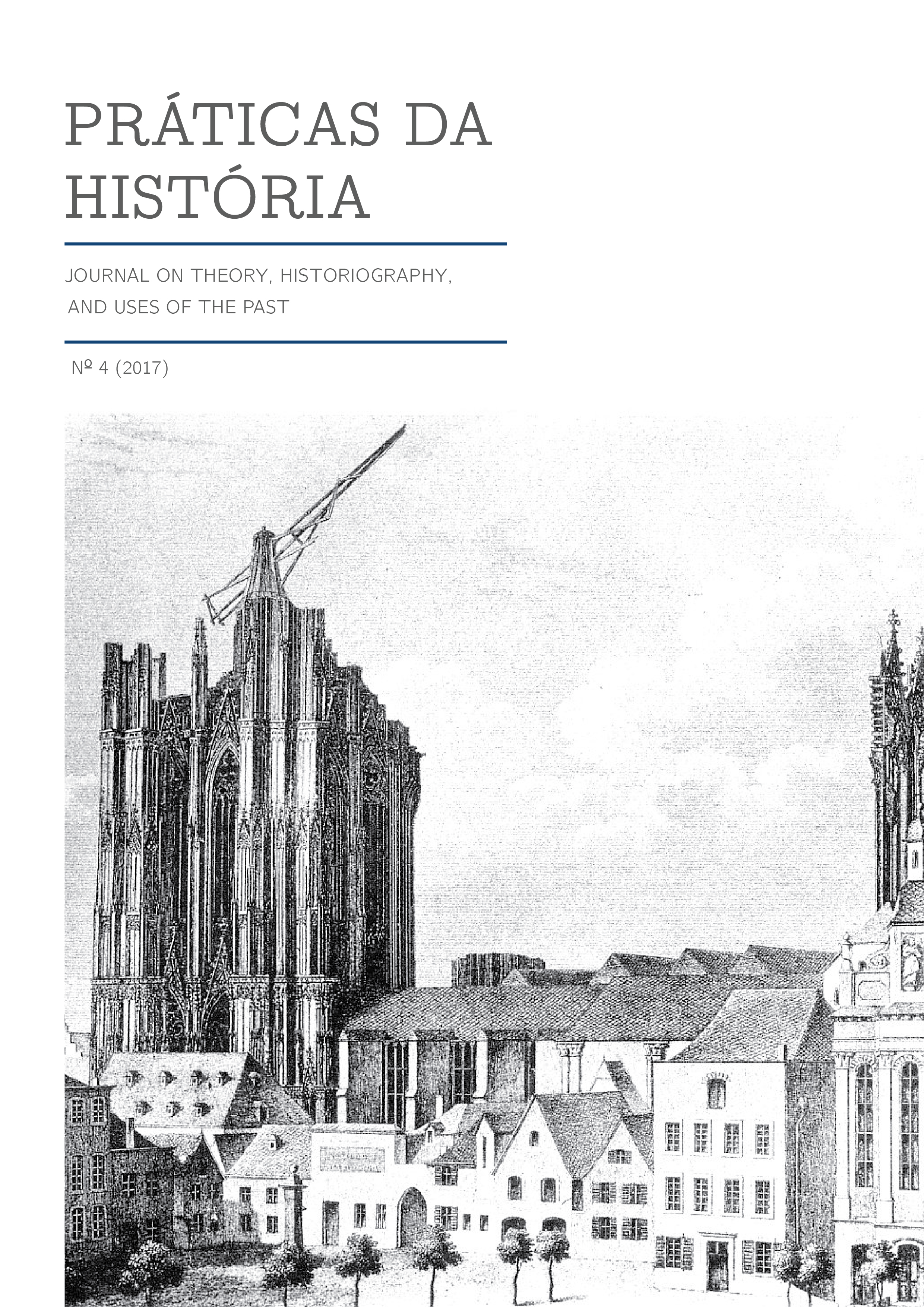Phantasia e epistemologia historiográfica: para uma leitura crítica da tripla mimese de Paul Ricoeur
DOI:
https://doi.org/10.48487/pdh.2017.n4.22980Palabras clave:
Paul RicoeurResumen
A narratividade a que a narrativa historiográfica está sujeita tem na memória a hipótese de identificação e de identidade, o que eleva o patamar do que é narrativo enquanto qualidade para um plano em que não basta a distribuição de categorias narrativas para que a descontinuidade surja. O que está em causa é a impossibilidade de transformar o objecto – o que comprometeria a natureza da historiografia e lhe retiraria o estatuto epistemológico que pode deter. Admitir a narratividade como irrupção do que é descontínuo leva a que a permanência deva ser relida. É que permanecer é a forma incoactiva de permanere, que significa nada menos do que “ficar até ao fim”. Nesse sentido, qual a importância de que se reveste o sistema da tríplice mimese preconizado por Paul Ricoeur? Que pertinência pode ter no campo da narrativa historiográfica? Ou, perguntando de outra forma, é possível ou viável pensar o paradigma de Ricoeur no tocante à teoria da História e à historiografia?



